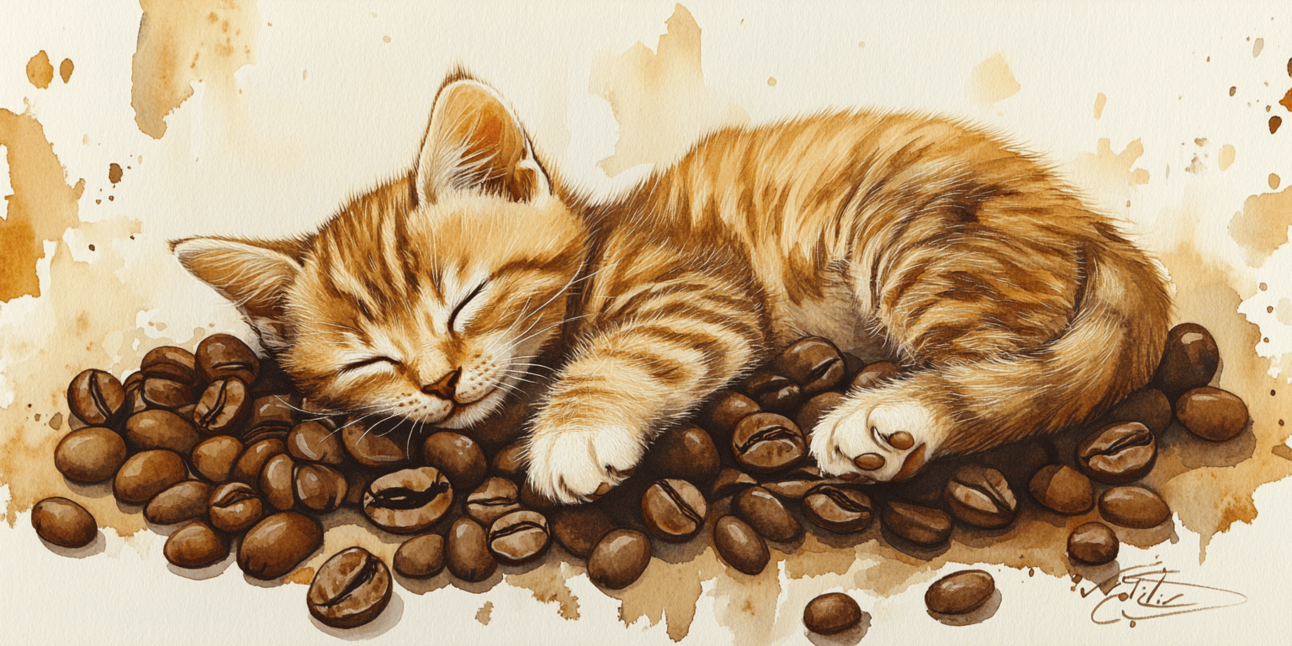What is the point of Decaf Coffee?
- science

If someone asks you why you like coffee, what would you say? Is it the taste or is it how it makes you feel after you have it?
It's hard to choose one benefit over the other.
It's the same with me. Sometimes I need it to make me feel good, and sometimes I get obsessed with perfecting my pour-overs.
We can only consume coffee in a limit. On top of that, there are time restrictions. If I drink in the evening, I can't fall asleep. Even if you can fall asleep after a coffee, it's advised not to and even science backs it up.1
But - What if there is coffee that would not affect your sleep and circadian rhythm?
This is where "decaf" comes into the picture.
Decaf stands for de-caffeination. It is the process where we remove the caffeine from coffee while (trying to) preserve its taste.
The downside is there won’t be any caffeine kick for obvious reasons.
How does that taste, even?
Well, I tried it. I had a friend get it for me from the US.

It's a dark (in fact Starbucks-style-dark) roast, which I am not a fan of.
I tried making pour-overs with these. And as it's dark, osmotic pour worked really well.
The taste is good enough, except it has a hollow feeling. It's hard to describe. And I am sure you wouldn't even feel the difference if you have this with milk or with any other combo. I am just nitpicking here.
Talking Science.
If you look at the packaging, it says "Water Process". This led me to research how decaf coffee is made.
Removing caffeine while preserving flavor requires balancing chemistry, time, and resource investment. All methods begin with green (unroasted) coffee beans, as roasting would lock in caffeine and alter flavor profiles.
There are four primary decaffeination processes: solvent-based, Swiss Water, CO₂, and methylene chloride method.
Talking about each in detail would be a lot for this post, so let me leave some links for you to explore. Now I will describe how my brain understands these.
Imagine you’re washing mud off a potato. If the mud were caffeine, here’s how each method works:
Solvent and Methylene Chloride Method: Use soap (chemicals) to scrub off mud quickly. Cheap but leaves a tiny soap residue.
Swiss Water: Soak the potato in mud-free water. The mud moves out, but it takes all day. (This is the one the I tried)
CO₂ Method: Fancy pressure washers blast away mud without soap. Fast and clean but needs expensive equipment.
These complex processes are the reasons behind the high price of decaf coffee.
Can I try?
I am glad India's coffee scene is growing. I recently found out about a few Indian roasters making decaf.
Naivo Roasters uses dichloromethane to make their Zero Buzz Decaf.
Home Blend Coffee makes Boothangudi Estate Decaffeinated using the Natural CO₂ Method. You can pick the roast level here.
Marcs Coffees also has a Boothangudi Decaf. It is a medium-dark roast.
Exciting times.
So friend, would you try decaf? If you already have, how was your experience?
More links to understand Decaf
https://savorista.com/blogs/savorista-blog/how-does-the-swiss-water-process-work
https://roargill.com/blogs/the-roar-gill-blog/what-s-the-co2-decaf-process-all-about
That’s all I have. Have a caffeinated, or a decaf 😉, weekend.
See you.
Keep on brewing!